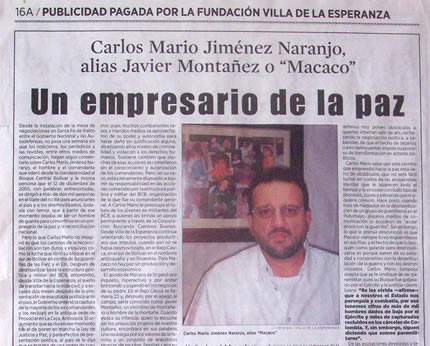Ignorance. That’s the word which would summarize what happened on Tuesday 28 August in Bogotá. After Peru’s earthquake, and as every time a quake happens near Colombia, Bogotans remember, again, they should be prepared for this kind of disasters, but they (we) don’t. Around noon, someone who had nothing best to do, called several companies and government offices, pretending to be an engineer of Ingeominas (Colombia’s geological institute), and told them that an earthquake was going to take place in the city around 5 PM. The emergency hotlines, as well as the National Seismologic Network phone lines, collapsed. The rumour had been around since several days ago.
Even though most people with some education -or with some kind of common sense- know that earthquakes can’t be predicted (so far, of course), some buildings, specially downtown, started to be evacuated, and panic started. As you can see in the video, a surveillance worker for a military hospital told Caracol TV: “the order was to evacuate the [normal] people, not the patients”.
Nevertheless, the fear a big earthquake will strike Bogotá someday is by no means groundless. As Víctor Solano reminds us:
All the city of Bogotá is located in an intermediate seismic threat area. (…) the impact of an earthquake in Bogotá would be huge because the norms for an earthquake resistant architecture were adopted too late and that’s why 80 per cent of the buildings could collapse loudly.
Solano also criticized the media coverage and asked them to be more “responsible”. For example, some media outlets, like El Tiempo or Caracol Radio, claimed the National University of Colombia campus was evacuated, which wasn’t true (later they corrected the wrong information they provided).
The worst thing is that for almost two centuries a “prophecy” by father Francisco Margallo y Duquesne rings the ears of a lot of Bogotans every August: “The 31 August a year I won’t tell / successive earthquakes will destroy Santafé” (Bogotá’s colonial name, which was taken up again on 1991-2000). Although in 1917 (when several earthquakes actually struck the then big town) and 1973 the Margallo prophecy was about to be fulfilled, the last time Bogotá has been hit by a high magnitude earthquake was February 1967. On May there was an earthquake which left no victims (it was a Saturday around midnight, so I didn’t feel it). Maybe some people let themselves sway because of the date. In a Catholic country, is not strange to find some devote souls asking to go back into praying, as if a natural disaster was a punishment from God. The fans of the “triangle of life” hoax also show up on the forums. Of course, not everyone is so ignorant.
Bogotá’s mayor office has been working for years in a campaign in order to teach Bogotans what to do and how to prevent these events. Though the campaign has been praised, it seems that, if you see what happened on Tuesday, most people don’t take heed of it. As Hodracirk says, “it was a flashmob known only by one person” (the pranker, of course). It seems that, on one side, that campaign and everything we can do in order to learn how to prevent these disasters need to be spread. On the other, that we must be responsible and not to believe everything we find or read on the net. Ignorance is not just “daring”, as we use to say here, it may also be dangerous.

